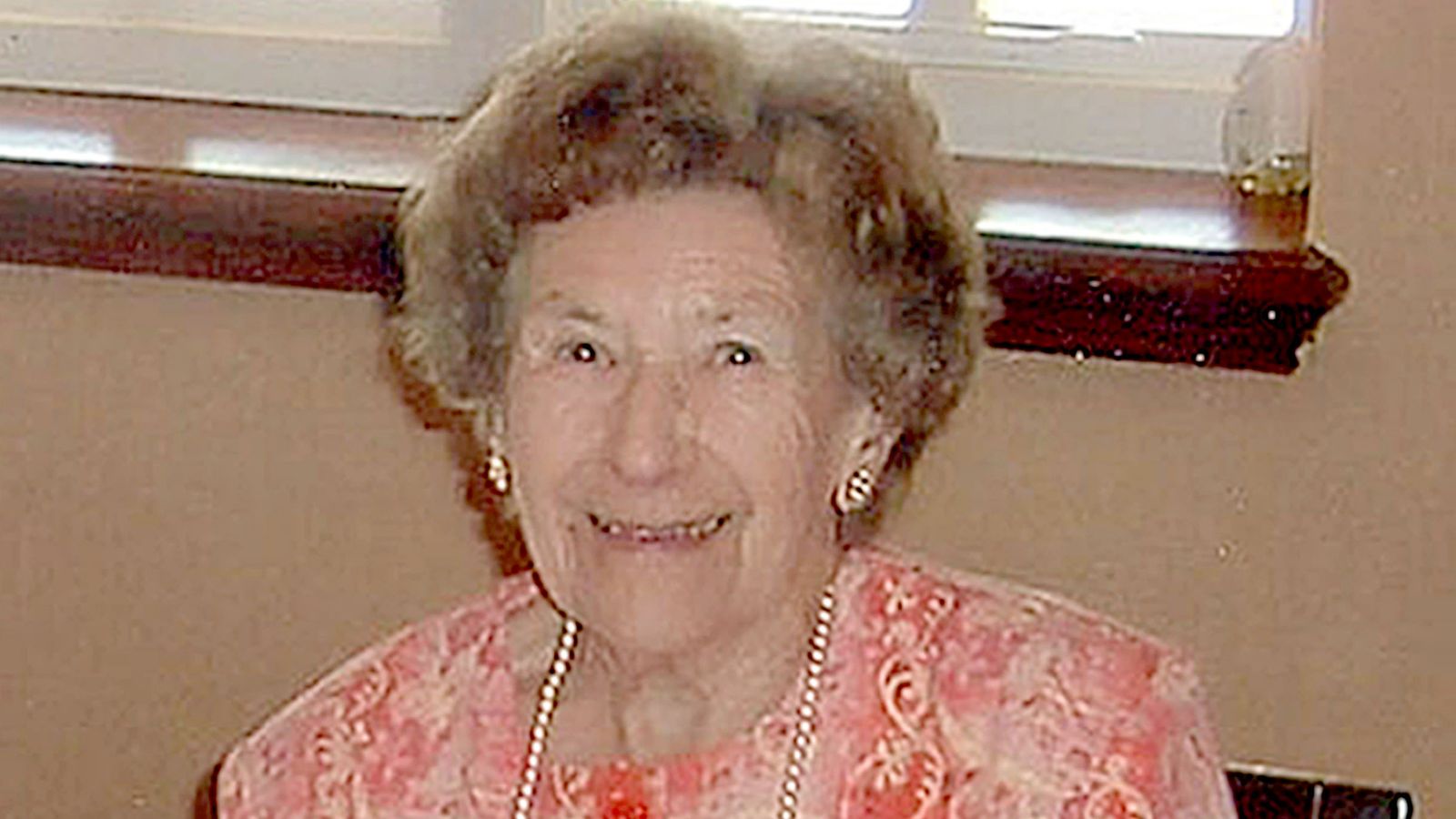U.K News
Una Crown: Man found guilty of 86-year-old’s murder after DNA found on nail clippings

The Tragic Death of Una Crown: A Delayed Justice
Una Crown, an 86-year-old retired postmistress, lived a quiet life in the Wisbech area of Cambridgeshire. Her peaceful existence was shattered on January 13, 2013, when she was found dead in her home. The initial police investigation did not deem her death suspicious, a decision that would later be criticized as a grave mistake. Una had suffered severe injuries, including stab wounds to her chest, a slit throat, and her clothes had been set on fire. The case would go cold for years, leaving her family in anguish, until a breakthrough in DNA testing led to the conviction of her killer, David Newton.
A Grave Error in Judgment: The Initial Investigation
The death of Una Crown was initially dismissed as non-suspicious, a decision that baffled many, including her family. John Payne, the husband of Una’s niece, discovered her lifeless body in the hallway of her home when he arrived to take her to Sunday lunch. The police at the time did not pursue the case with the vigor it deserved, failing to recognize the severity of the crime scene. This oversight delayed justice for Una and her family, leaving them in a decade-long limbo of unanswered questions and unanswered grief.
The DNA Breakthrough: Unraveling the Mystery
Years later, in 2023, advancements in DNA testing provided the crucial evidence needed to solve the case. Male DNA matching David Newton’s profile was found on Una’s nail clippings, indicating a violent struggle. Newton, a 70-year-old man on state benefits, had been spending money freely around the time of the murder, and cash was missing from Una’s handbag. These pieces of evidence pointed to a motive and a connection between Newton and Una’s tragic demise. The prosecution did not need to prove the exact reasons behind Newton’s actions, as the DNA evidence and circumstantial clues were sufficient to build a compelling case against him.
The Trial and Conviction: Justice Delayed, Not Denied
David Newton was charged with Una’s murder in 2023, nearly a decade after her death. He denied the charges, maintaining his innocence throughout the trial. However, the evidence against him was overwhelming. After deliberating for 29 hours and 13 minutes, the jury delivered a guilty verdict by a majority of 10 to 2. Newton’s reaction in the courtroom was telling—he appeared open-mouthed, seemingly shocked by the decision. The conviction brought some closure to Una’s family, though it could never undo the pain of losing their loved one.
Reflection and Accountability: The Police Response
Detective Superintendent Iain Moor of Cambridgeshire Police acknowledged the mistakes made during the initial investigation, offering apologies to Una’s family. The police admitted that their failure to recognize the suspicious nature of Una’s death was a grave error. Moor emphasized that Newton had thought he had evaded justice for over a decade, but the advancements in DNA testing and a renewed investigation ensured that he could no longer hide from his actions. The case serves as a reminder of the importance of thorough investigations and the impact of technological advancements in solving cold cases.
Moving Forward: Sentencing and Closure
David Newton is set to be sentenced on February 14, marking the final chapter in this tragic saga. The conclusion of the case brings a measure of comfort to Una’s family, who have waited years for justice. While the verdict cannot bring Una back, it ensures that her killer will be held accountable for his heinous actions. The case of Una Crown is a poignant reminder of the resilience of justice and the enduring hope for closure, even in the face of unimaginable tragedy.